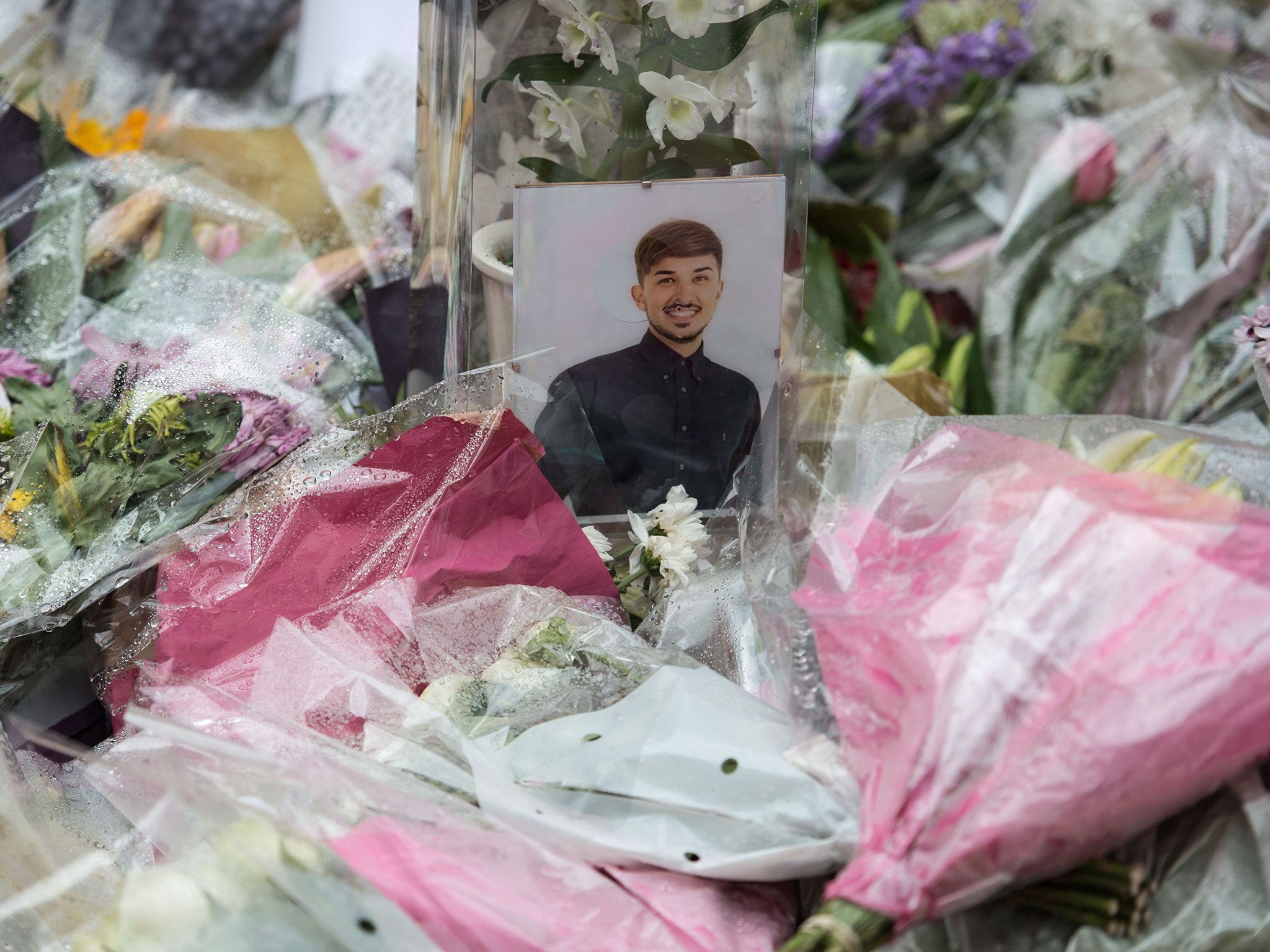Manchester Arena bombing victims’ families accuse government of ‘dithering’ over venue security
Bereaved relatives ‘fobbed off with fine words and treated to fine meetings with tea and biscuits’, barrister says

Families of the victims killed in the Manchester Arena bombing have called for the government to stop “dithering” over a proposed law to guarantee minimum security protections at venues.
Figen Murray, the mother of victim Martyn Hett, has been campaigning for legislation in his name that would require measures potentially including bag searches and scanners.
Ministers have voiced support but not yet brought proposals forward, as calls for change mount following allegations that poor security at Manchester Arena allowed Salman Abedi’s attack to take place.
On Tuesday, a barrister representing Mr Hett’s relatives and those of 11 other victims told the public inquiry there was an “acute and pressing” need for the law amid the continued terror threat in Britain.
John Cooper QC said evidence on security on the night of the May 2017 bombing “served to tragically demonstrate that the current security regulatory regime has created an environment in which the UK’s biggest entertainment venue operators and security providers can fall far short of the standards of the time, with devastating results”.
He accused the government of “dithering” over consulting on the proposals, even while offering supportive words.
“Those we represent have been fobbed off with fine words, have been treated to fine meetings with tea and biscuits on tap,” Mr Cooper told the inquiry.
“But the time for governmental tea and biscuits over Martyn’s Law and protective security is over … those we represent want action.”
Responding to the submissions, inquiry chair Sir John Saunders noted that Ms Murray had met with the security minister within recent days.
Writing on Twitter, Ms Murray said that Martyn’s Law “has to happen sooner rather than later” and added: “It is a very common sense set of measures which quite frankly should exist.”
A Home Office spokesperson said it was “absolutely committed” to creating a duty around protection as soon as possible.
“We have temporarily paused the launch of the consultation in light of the coronavirus outbreak as it is vitally important that businesses are able to meaningfully contribute to the process to ensure we get this right,” he added.

The inquiry has heard evidence of numerous “missed opportunities” to prevent Salman Abedi detonating his bomb on 22 May 2017, from the CCTV blindspot he hid in for almost an hour to insufficient terror attack planning, poor staff training and inadequate police patrols.
But a barrister representing arena operator SMG told the inquiry that Abedi was “unlikely” to have been picked up as suspicious by CCTV and instead sub-contract security staff employed by Manchester Arena's operator should have acted.
Andrew O'Connor QC said the firm was not looking to “pass the buck” as he rebutted criticism of the arena security operation by lawyers for the families of the 22 people murdered.
“It was not a business that put profit before safety,” he added, saying that SMG managers were in contact with police counter terrorism advisers and made contact to review security after the 2015 Paris attacks.
Mr O'Connor, citing the inquiry's own expert report, said the Arena's security operation at the time of the bombing was not “dramatically out of step” with comparable venues.
Patrick Gibbs QC, representing British Transport Police said the force made some “concessions” about its performance on the night.
Of the four BTP officers on duty, the constable and her PCSO colleague took two-hour breaks with no officers on duty at the time Abedi made his “final approach” to the City Room and no officer on duty in there for the end of the concert.
But he said, even if circumstances had been different, Abedi's determination to die and take as many innocent bystanders with him would not have changed.
He added: “If the proceeding events before 10.31pm had gone differently, there would have been a different outcome, but what exactly that outcome would have been, and how many people would have died and how many would have been seriously injured and who they would have been, is impossible with any confidence to say.”
The hearing was adjourned until Wednesday morning.




Bookmark popover
Removed from bookmarks